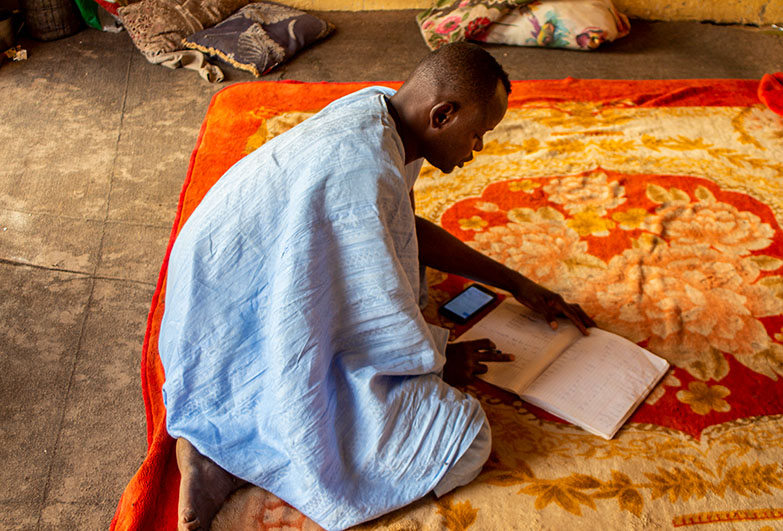Accountability

At Anti-Slavery International, we are committed to ensuring accountability to our stakeholders and to delivering quality programmes guided by agreed codes and standards.
Commitment to Accountability
Anti-Slavery International adopted a voluntary Commitment to Accountability in accordance with an open information approach. Full details of our approach to sharing information, including what we chose to protect and why, is included in our Open Information Policy. As a part of this approach, we currently publish the data from three projects to the International Accountability and Transparency Initiative (IATI) register and will publish all new projects from 2017.
As one of our six prioritised organisational values, Anti-Slavery International is committed to being accountable to people affected by and vulnerable to slavery, partner organisations, members and supporters, donors, relevant governments and international institutions, and our staff. This commitment is proactively exercised through open and transparent work practices, such as publishing details of funding and evaluations (see below), sharing information, and responding to requests for information.
Policies
Safeguarding Policies
Anti-Slavery International works at local, national and international levels to eliminate all forms of slavery around the world. Many of those with whom we work suffer serious harm and abuse and ensuring their protection is both an organisational and individual responsibility.
Our Safeguarding Policies are a statement of intent that demonstrates our commitment to safeguarding those we encounter and work with from harm and abuse. All representatives of Anti-Slavery International have a responsibility to implement the policies and procedures contained within our Safeguarding Framework to ensure that the people that the organisation comes into contact with are not harmed through involvement in our work. This applies to all board members, all staff, interns and volunteers and all consultants and others who visit programmes in the name of Anti-Slavery International.
Anti-Slavery International works with and through local partner organisations in a large number of countries. We recognise that effective safeguarding policies need to reflect the specific legal and cultural contexts in which our local partners are working. Our Safeguarding Policies set out our responsibility to agree minimum safeguarding standards with partners and to support them to implement those, and to respond to any safeguarding issues or concerns with appropriate advice and support to help the partner organisation to take effective action.
Other policies
- Open Information Policy
- Equal Opportunities Policy
- Harassment Policy
- Bribery and Corruption Policy
- Protected Disclosure and Whistleblowing Policy
- Bribery and Corruption Policy (in French)
Evaluations:
We are committed to publish our project evaluations as soon as they are completed.
- Africa Programme, 2021: CHRICED in Nigeria
- Africa Programme, 2021: Lutte contre l’esclavage traditionnel basé sur l’ascendance et la mendicité forcée des enfants…
- Africa Programme, 2021: Combating traditional slavery based on descent and forced begging of children…
- Africa Programme, 2021: Lutte contre l’esclavage traditionnel basé sur l’ascendance et la mendicité forcée des enfants…
- Asia Programme, 2020: Trafficking for Commercial Sexual Exploitation in Nepal
- Africa Programme, 2017: Community Schools for Children of Slave Descent in Niger, Final Evaluation
- Africa Programme, 2017: Ecoles Communautaires pour les Enfants d’Ascendance Esclave au Niger
- Africa Programme, 2017: Senegal, Ending Forced Child Begging in Senegal, Final Evaluation
- Africa Programme, February 2017: Mauritania Violence Against Women Evaluation February 2017
- Asia Programme, November 2016: Nepal, Lebanon Migrant Domestic Workers Evaluation November 2016
- South Asia Programme, October 2015: Nepal Education Project Evaluation Oct 2015
- Africa Programme, December 2011: Niger Schools Independent Evaluation 2012
- Trafficking Programme, June 2010: Anti-Trafficking Monitoring Group Evaluation 2010
- South Asia, December 2008: Bonded Labour India Evaluation
- Child Labour, November 2004: Implementation of ILO Convention 182 evaluation
- Challenging descent-based slavery in West Africa, May 2012: Descent based slavery project evaluation
- Child Domestic Workers, DFID project progress reports 2009-2013:
- Tackling trafficking and forced labour in relation to London Olympics, 2013: Olympics project – lesson learned
- Project to end forced child begging in Senegal, July 2013: Talibes project mid term review
More evaluations and policies will be added in the near future.